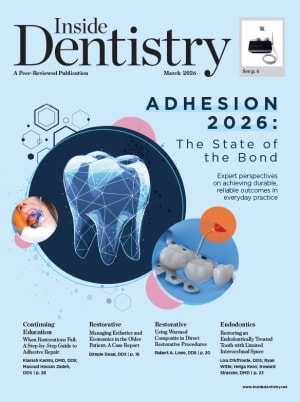Treating Tongue-Tie With Dental Laser Surgery
Ankyloglossia, or "tongue-tie," is a condition in which an overly short, thick, or tight lingual frenulum limits the tongue's range of motion. Because tongue-tie tethers the bottom of the tip of the tongue to the floor of the mouth, it can interfere with breastfeeding, chewing, swallowing, and even breathing. If left untreated, it can also contribute to speech, respiratory, dental, and self-esteem problems in older children, as well as the inability to develop a proper airway, which has been linked to the development of asthma, sleep disorders, allergies, and attention-deficit/hyperactivity disorder (ADHD).
Common signs that a newborn has tongue-tie can include trouble staying latched, "clicking" sounds when breastfeeding, and poor milk transfer, which can lead to issues with weight gain and milk supply. Nipple pain and trauma experienced by the mother can also be indicative of tongue-tie. Despite these signs, tongue-tie is often overlooked or misdiagnosed. In some cases, a mother may abandon breastfeeding because she assumes or is told by a medical provider that the baby is unable to latch. In others, babies who fail to thrive may have to undergo otherwise unnecessary gastrointestinal procedures, such as the insertion of a gastrostomy tube.
Increased interest in breastfeeding has contributed to a heightened awareness around the link between tongue-tie and breastfeeding difficulties. Gradually, more lactation consultants, pediatricians, general dentists, and others are referring newborns to pediatric dentists for tongue-tie assessments. At my former practice, patients were often referred directly from the labor and delivery unit at the local hospital. As the interest in breastfeeding has grown, many pediatric dentists have also contributed to increased awareness by advocating for frenectomies in infants who struggle to latch.
Although there is a heightened awareness regarding tongue-tie, many parents are still misinformed about the condition, and many patients remain misdiagnosed, such as a recent patient of mine-a newborn whose mother had met with many consultants and suffered through many sleepless nights because of her baby's inability to breastfeed. Initially, the baby was a patient in the neonatal intensive care unit (NICU), so the mother was unable to begin breastfeeding right away. Instead, the baby was fed pumped breast milk with a bottle. However, even after the baby was released from the NICU, she still wouldn't latch. She also struggled with the bottle and would smack and "click" on the nipple, leaking milk from the corners of her mouth. Because she ingested a lot of air when feeding, she would become gassy, which caused her to fuss for hours until the gas had passed.
My examination of the baby's lingual frenulum revealed that she was unable to elevate her tongue to 25% when crying or to 50% with finger pressure. When running a finger across the floor of her mouth, a severe barrier was apparent. Her finger-sucking ability was also very weak; she smacked her tongue and lacked continuous wave motion. In addition, the tissues of her lingual frenulum and maxillary labial frenulum appeared thick, short, and inelastic.
With today's dental laser technology, tongue-tie release is a minimally invasive procedure that can correct the condition in less than 5 minutes. The baby was appointed, and her tongue-tie and maxillary labial frenulum were both released using an all-tissue dental laser. No topical or local anesthetic was used due to the heightened risk in infants for acute toxic methemoglobinemia. The tongue was lifted with a groove director to isolate the frenulum tissue, and hemostasis was controlled with gauze and the laser's "bandage" setting. Once the procedure was complete, movement and function were verified. After the frenectomies, the mother reported that the baby had no gas and was less fussy and more comfortable. Most importantly, however, her ability to bottle feed had dramatically improved.
If a newborn is struggling to breastfeed, it's important for parents or medical professionals to consult with a pediatric dentist for a tongue-tie assessment before resorting to more extreme measures. Unlike conventional surgery, laser surgery requires no sutures, causes virtually no bleeding or inflammation, and minimizes the risk of pain and infection, making it the perfect tongue-tie solution for patients, parents, and providers.
About the Author
Ben Curtis, DDS, is a board-certified pediatric dentist who maintains a private practice in Canton, Texas.
